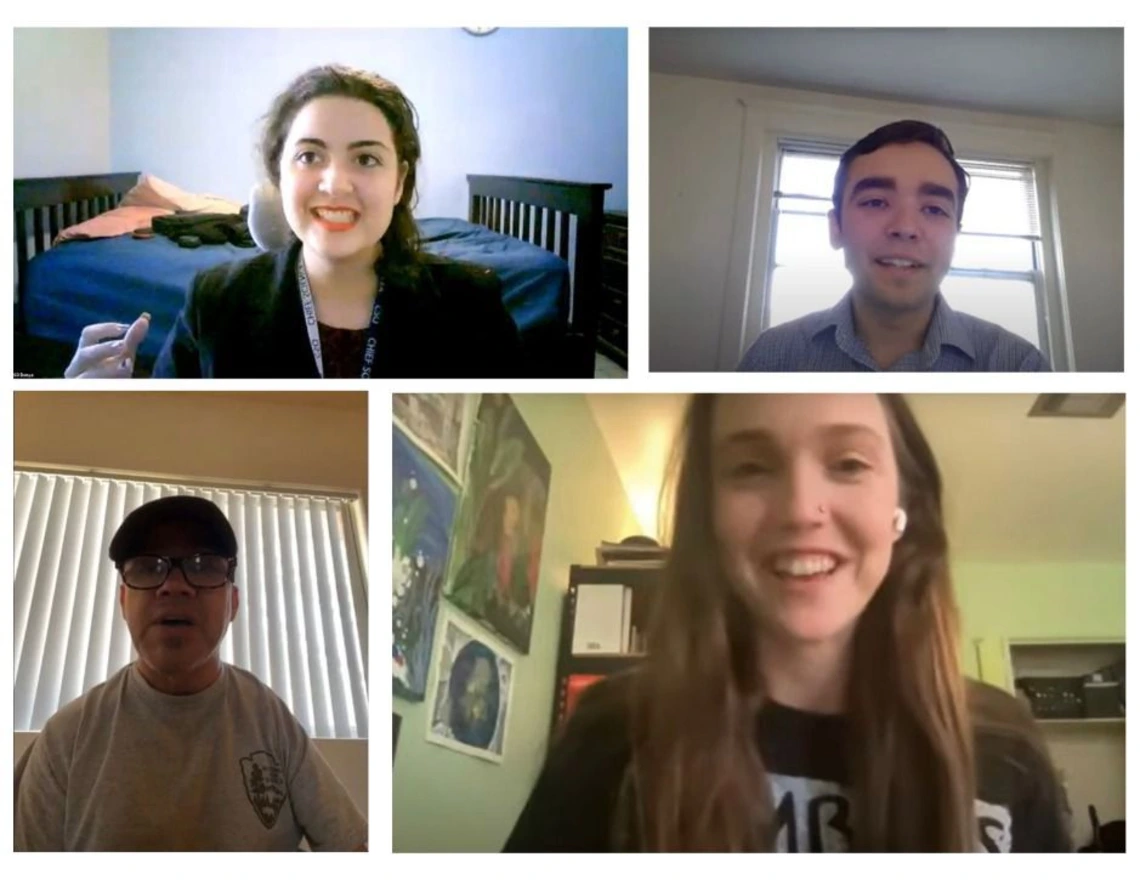Cultivating STEM Communities: The future of STEM Depends On Who Is Included

This post originally appeared on Startup Unidos.
The day kicked off with our keynote speaker, Cam Juarez, who is a Park ranger at Saguaro National Park (Tucson) and identifies as a Latino who is physically disabled. Cam runs the Next Generation Ranger program, which specifically recruits young people of color to get into environmental careers. Throughout the keynote session, he talked about how important the role of the Park and the people working there was for our community. Not only does Next Generation Ranger work to increase the participation of the latino community in the park, from the US and Mexico, but they also work alongside different colleges, like the University of Arizona to understand, through research, the barriers that keep people from recreating in the park; that way they can develop programs and initiatives to work on the problem from the roots.
Saguaro National Park is more than just a place for research, exploration, and recreation; it is a place for connection and creativity. One of the most important projects that Cam talked about was storytelling. The park is part of the identity of our community, and it has been around for many generations, making it a place full of knowledge and history. By telling the stories of its ancestors, the birth of Tucson, the O’odham Native Nation, what has been done in the past, where we as a society did great, but also where we didn’t.
Cam believes we can start to build a common identity as a society, learn from those past experiences, and avoid making future mistakes. He later discussed the importance of having young people exposed to the types of experiences that the park has to offer, as it sparks an interest in conservation and the environment. “If you engage in a stem career at an early age, and you're exposed to conservation in early age, and then you follow a career in stem, then that will give you the resources to break that cycle. That cycle that keeps us from engaging [..] and it gives you the opportunity to create.”
Watch Cam's Keynote Session available now at Startup Unidos on YouTube out:
The preliminary event also included a panel by members of the Chief Science Officers (CSO) program, which amplifies student voices by bringing their peers and community leaders together to ignite new opportunities in STEM and innovation. Danya Cole from Obregon, and Caillou Peña from Arizona, joined us to discuss how STEM can impact our communities and eventually the world. As we talked about where STEM was going in the upcoming years, an important conversation started and it was noted, "the future of STEM depends on who is included in the STEM community” as mentioned by Caillou, and that DEI is the backbone of innovation. Which is why Danya emphasized on the importance of programs such as CSO, that not only value but also encourage diversity, enrich their programs by giving opportunities to brilliant people that otherwise wouldn’t have access to them; allowing people like her to create opportunities and bringing STEM, innovation, and inspiration to their communities. And to wrap up the session, both members of the panel talked about how it is not needed to be part of these programs to become a change maker. At the end of the day, the CSO program gave them the label of “officer” and an amazing network; but we all know people in our communities, teachers, family members, friends, and so on, and each one of them can teach us something. All that is really needed to become a change maker is the will, initiative, and hard work.
During our entire program, we had people from different backgrounds enrich us with their knowledge, experience, and passion. This was an eye opening event, in which the relevance and connection of DEI, STEM, and sustainability was incredibly highlighted and made aware to us. The inspiring sessions made the people present realize that we also have what it takes to become change makers in our communities.
Watch the Panel of CSO's available now at Startup Unidos on YouTube:
If you are interested in learning more about these topics, you can also see the workshop "STEM and Entrepreneurship" by PhD Lane Breshears:
She talked to us about the research she did during her PhD. program at the University of Arizona, which was focused on rapid, low cost, point of care biosensors. The main goal of the projects of the lab she works at is to improve already existing technology by increasing accessibility by using technologies such as 3D printing and smartphones to make devices easier to use. For most of the projects Dr. Breshears worked on, she used paper to create chips by printing wax on them and generating channels for solutions to flow through them. Chemistry would allow her to find the virus, hardware, such as smartphones and 3D printed stands were to be used to capture an image, and developing software by coding was used to analyze such images. These technologies were applied to detect COVID and PFOA, but they can also be used to analyze the health of your plants at home. In the future she expects and hopes that most people can have a lab in their pockets able to detect different diseases.
